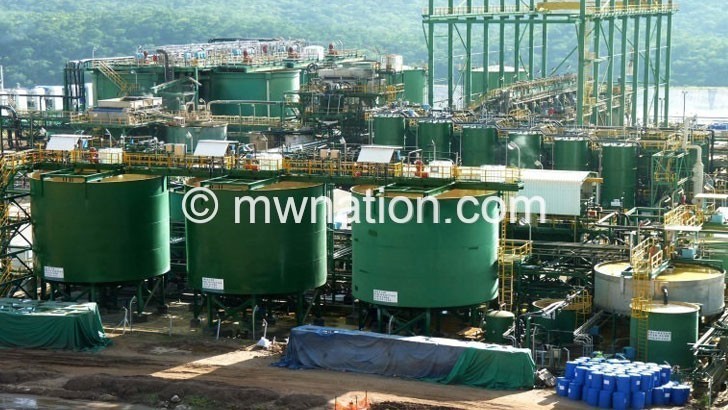Paladin gets nod to finalise Kayelekera sale
Capital Hill has granted Australian mining firm Paladin Energy Limited an outstanding contractual consent to complete the sale of its stake in Paladin Africa Limited to other Australian companies.
Out of its majority 85 percent stake in Kayelekera Mine in Karonga, Paladin is offloading 65 percent interest to Lotus Resources Limited and the remaining 20 percent stake to Lily Resources Pty Limited.

In its latest announcement to its shareholders issued yesterday, the miner said the company was pleased that Minister of Natural Resources, Energy and Mining Bintony Kuntsaira and Minister of Finance, Economic Planning and Development Joseph Mwanamvekha have provided the company the contractual consent to finalise the deal.
In the announcement, the company’s chief executive officer Ian Purdye said completion of the sale is now subject to one final approval by the Reserve Bank of Malawi (RBM), which is expected to be granted on or before March 13 2020.
According to a consent timeline that we have seen, Paladin first signed the agreement to sell the mine to Lotus Resources in July 2019 before a Paladin noteholder consent was received by the company in August 2019.
In the same month, a Lotus shareholder approval was received before the Ministry of Natural Resources, Energy and Mining granted Paladin a statutory consent in December 2019.
Purdye said the key benefits of the sale of the mine to Paladin are a significant reduction in ongoing care and maintenance costs of roughly $5 million (about K3.8 billion) per annum associated with Kayelekera Mine; a 3.5 percent royalty based on revenues derived from future production at Kayelekera, as well as the repayment of funds advanced to provide security for the $10 million (about K7.6 billion) environmental performance bond.
“The sale of Paladin [Africa] Ltd will enable Paladin to prioritise its capital and other resources on its Langer Heinrich Mine [Langer Heinrich] in Namibia and to optimise the Langer Heinrich restart as it aims to be the first significant global producer to return to production once the uranium incentive price [both spot and term] ensures shareholders a suitable return on capital,” he said.
Meanwhile, Paladin has received tax clearance from the Malawi Revenue Authority (MRA) and is required to meet an estimated $1.25 million (about K940 million) in tax liabilities assessed in country at completion of the sale.
Ministry of Natural Resources, Energy and Mining Principal Secretary Patrick Matanda told Business News in Lilongwe that Malawi government’s 15 percent stake in the mine is intact.
Kayelekera Mine, which was officially opened in April 2009, is currently placed on care and maintenance since February 2014 following the tumbling of global uranium prices in the aftermath of the Fukushima nuclear disaster in Japan, which forced the closure of nuclear power plants across the world.
Prior to the disaster in 2011, uranium prices hovered around as high as $73 per pound and were expected to increase overtime, but to date, the price has nose-dived to a record low of between $20-$25 per pound, a price Paladin argues “is very weak” to resume production and exportation of the commodity.





